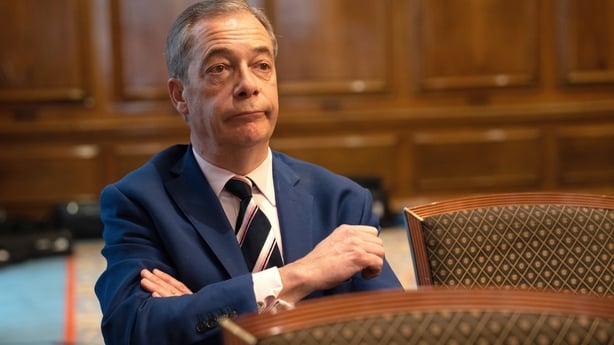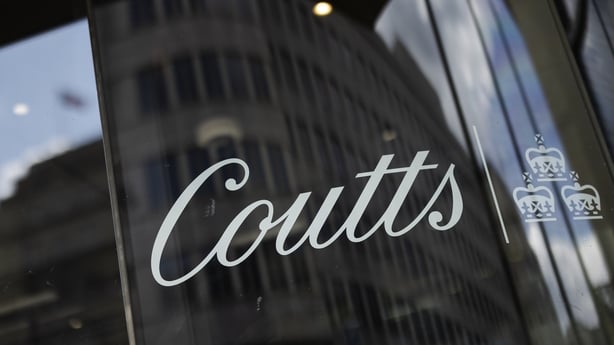NatWest boss Alison Rose has resigned from her position after admitting to a "serious error of judgment" in speaking to a reporter about the banking affairs of Nigel Farage.
Mr Farage had complained about the closure of his account with the upmarket Coutts, a subsidiary of NatWest and the bank used by Britain's late monarch, Queen Elizabeth.
He claimed that he had been removed as a client from the bank - which is still partly owned by the British taxpayer - for his political views.
However, in a report for which it has since apologised, the BBC suggested that his account had been closed because of a lack of funds.
Reacting to the departure of Ms Rose after nearly four years at the helm, Mr Farage called on the entire board of NatWest to resign.
"The first rule of banking is you have to obey client confidentiality. So they have made a complete and utter mess of this," he told Sky News, having made similar remarks in an earlier interview on BBC radio.
Mr Farage, a Eurosceptic politician and now a television presenter, campaigned for decades for Britain's withdrawal from the European Union and was a key figure in the 2016 Brexit referendum.
Pressure for Ms Rose to step down came from within the British government, which owns 39% of NatWest, and made clear its disapproval of her actions.

Minister Andrew Griffith, who is responsible for financial services, said that Rose had made the "right" decision to go.
"This would never have happened if NatWest had not taken it upon itself to withdraw a bank account due to someone's lawful political views," he said.
"I hope the whole financial sector learns from this incident."
In a meeting with banking executives today, Mr Griffin stressed the importance of protecting lawful freedom of expression for customers.
A statement said that all participants had committed to the principle of non-discrimination.
Senior Labour MPs questioned what they described as Downing Street's "astonishing" move to heap pressure onto demands for Ms Rose's resignation.
Respected and admired
NatWest said in a statement that Ms Rose "has dedicated all her working life so far to NatWest and will leave many colleagues who respect and admire her."
In a statement of her own she thanked her colleagues "for all that they have done".
Ms Rose added that she is "immensely proud of the progress the bank has made in supporting people, families and business across the UK".
After an initial statement of support from Natwest, her position became uncertain after Chancellor Jeremy Hunt and Downing Street were said to have "serious concerns" over her conduct.
An emergency board meeting was called late last night to determine her future, with the announcement of her resignation coming a few hours later.

Last week, Mr Farage presented a 40-page dossier to support his claim that Coutts had closed his account because of his political views.
The evidence contradicted a BBC News story, which had initially claimed that the account closure resulted from Mr Farage's failure to meet a £1m (€1.2) borrowing requirement.
The BBC and its business editor Simon Jack then apologised, saying that they had relied on a "trusted and senior source", but that the information had "turned out to be incomplete and inaccurate".

Farage calls for wider 'cultural change'
While Mr Farage said that Ms Rose's departure is "a start" he called for a "cultural change" at the bank and within the wider industry, and vowed to continue to campaign on account closures.
He told the PA news agency he wanted a "cultural change within NatWest, they ought to go back to being a bank, rather than being a moral arbiter for political positions".
NatWest owned Ulster Bank in Ireland. Its share were down over 3.5% in London trade today.
CEO of the Banking and Payments Federation Ireland, Brian Hayes, described the events as "quite bizarre".
Speaking on RTÉ Radio's Morning Ireland, he said that confidentiality is crucial in the relationship between a bank and its customer.
"Banks have legal responsibilities under EU and domestic legislation, especially when it comes to politically exposed people", Mr Hayes said.
"That is something that politicians have imposed on the sector correctly, for the purposes of trying to minimise risk, and all the banks have to enforce that legislation and do it in a fair and impartial way."

